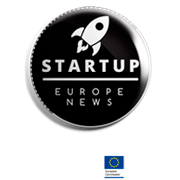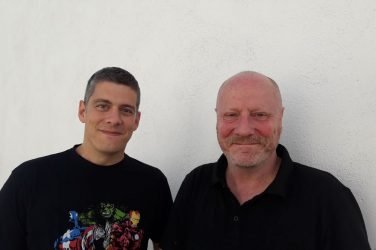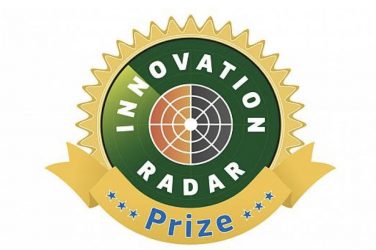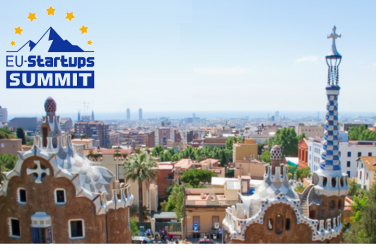On Tuesday evening, during the annual SME Assembly, the most important event for small and medium enterprises in Europe, the European Commission announced the winners of the 2021 European Enterprise Promotion Awards (EEPA). The initiative rewards entities promoting entrepreneurship and small businesses at national, regional and local level.
THE GRAND JURY PRIZE went to Germany
Project: COMPETENZentrum für Selbständige by Initiative Selbständiger Immigrantinnen e. V.
The Project was also a winner in CATEGORY 2 – INVESTING IN ENTREPRENEURIAL SKILLS which recognises initiatives at national, regional or local level to improve entrepreneurial, managerial and employee skills.
COMPETENZentrum für Selbständige, which is supported by the non-profit association Initiative Selbständiger Immigrantinnen (ISI), supports migrant women with training and professional development, providing them with the skills they need to become self-employed. By providing free training, coaching and networking opportunities, both migrant women who are willing to start a business and those who are already self-employed, are enabled to put business ideas into practice and to build up their own sustainable business in Berlin. The project is guided by the principle that migrant women stand up for migrant women.
The other Winners are as follows:
CATEGORY 1 – PROMOTING THE ENTREPRENEURIAL SPIRIT
Recognises initiatives at national, regional or local level that promote an entrepreneurial mindset especially among young people and women.
WINNER: Spain
Project: Culinary Action! by Basque Culinary Center
Culinary Action! (CA!), implemented by the Basque Culinary Centre, provides training and supports the professionalisation of the gastronomy sector. Since 2011, Basque Culinary Centre has been contributing to innovation and growth in the gastronomy sector, not least through its involvement in the Faculty of Gastronomic Sciences at Mondragon University and the unique Centre for Research and Innovation in Food and Gastronomy, where the project is helping to produce the chefs and food scientists of the future. What’s more, through other projects, such as Building a Green Gastronomic City, CA! is helping to find circular economy solutions to food sustainability challenges and create an environment where experts, suppliers, producers, chefs, and consumers can co-create solutions to reactivate local gastronomy and educate citizens on sustainability. The project’s overarching goal is to instil its values of passion, excellence, and social commitment into gastronomy research and innovation.
CATEGORY 3 – IMPROVING THE BUSINESS ENVIRONMENT & SUPPORTING THE DIGITAL TRANSITION
Recognises innovative policies at national, regional or local level which promote enterprise startup and growth, simplified legislative and administrative procedures for businesses and implementing the “Think Small First” principle in favour of small and medium-sized enterprises.
WINNER: Portugal
Project: “Digital Commerce” Programme by ACEPI – Digital Economy Portugal in partnership with CCP – Portuguese Commerce and Services Confederation and with Municipal Council of Viana do Castelo
Having a digital presence is a key first step for companies wishing to create more business and value and to reach new markets. Digital Commerce, a programme being implemented by ACEPI – Digital Economy Association – supports the digital transformation of SMEs, in particular micro-enterprises, in the commerce and services sector. In three years, the programme has trained 67 digital consultants and provided expertise to 50 business and commercial associations. What’s more, 1,345 entrepreneurs have graduated from its Digital Academy and the programme has conducted 51 sessions and workshops as part of a National Roadshow, in which around 3,000 entrepreneurs and traders took part. It has also organised a series of 34 free webinars, with over 1,500 participants. The programme has set itself an ambitious target – by 2022 it aims to digitally train more than 50,000 companies.
CATEGORY 4 – SUPPORTING THE INTERNATIONALISATION OF BUSINESS
Recognises policies and initiatives at national, regional or local level that encourage enterprises, particularly small and medium-sized businesses, to benefit more from the opportunities offered by markets both inside and outside the European Union.
WINNER: Spain
Project: Iberian Centre for Research and Forest Firefighting – Firefighting Open Innovation Lab-CILIFO (FOIL-CILIFO) by Fundación Finnova
Forest fires are a hazard that we see with alarming frequency in Europe, and Spain has been particularly hard hit. To build the country’s and Europe’s firefighting capacity, the Firefighting Open Innovation Lab-CILIFO (FOIL-CILIFO) accelerator, managed by the Finnova Foundation within the framework of the Iberian Centre for Research and Fight against Forest Fires (CILIFO), has been supporting entrepreneurs, technologies, companies and start-ups in the sector of forest fire prevention and extinction and forest management. The project offers companies the opportunity to test innovative technology in a real environment, helps them find international partners to replicate their results, and provides legal advice and support in accessing European funding with the help of specialised mentors. To date, 25 companies from up to 10 countries are benefiting from the services offered by the accelerator, which is the first of its kind in the sector.
CATEGORY 5 – SUPPORTING THE DEVELOPMENT OF GREEN MARKETS AND RESOURCE EFFICIENCY
Recognises policies and initiatives that support SME access to green markets and help to improve their resource efficiency.
WINNER: Slovenia
Project: Green Penguin by Iskraemeco, d.d.
Cities are responsible for more than 70% of all GHG emissions and so it will be critical to engage cities in the fight against climate change, encouraging them to adopt innovative solutions to mitigate risks and achieve carbon neutrality. With this goal in mind, Green Penguin combines real data with smart digital technologies in a digital game for schoolchildren. Through the game, Green Penguin teaches schools and children environmental and digital literacy. It shows children how to achieve significant CO2 reductions, raises their awareness of environmental challenges and sustainable development and, importantly, creates future generations of environmental protectors, engaging them in the co-creation of solutions for the carbon-neutral cities of the future.
CATEGORY 6 – RESPONSIBLE AND INCLUSIVE ENTREPRENEURSHIP
Recognises national, regional or local initiatives by authorities or public/private partnerships which promote corporate social responsibility among small and medium-sized enterprises.
WINNER: Sweden
Project: Inkludera by Inkludera
Since 2011, Inkludera has been working to turn social innovations developed at the grassroots level into viable solutions that tackle the challenges that Sweden is facing. It does this by supporting social entrepreneurs who have developed unique solutions, helping them to scale up and become financially sustainable. One such solution is the Changers Hub, which creates positive meeting places for young adults and provides them with the tools they need to make constructive choices and achieve success. Inkludera selects the entrepreneurs and start-ups and supports them in building partnerships with the public sector. The combined experience of the Inkludera team is then put to use in strengthening the social organisations’ ability to work long-term and sustainably. Since 2013, entrepreneurs supported by Inkludera have entered into over 900 partnerships with 108 of Sweden’s municipalities. These partnerships have resulted in the entrepreneurs working with 27,200 people in 2020 to address various social issues.












Show Comments